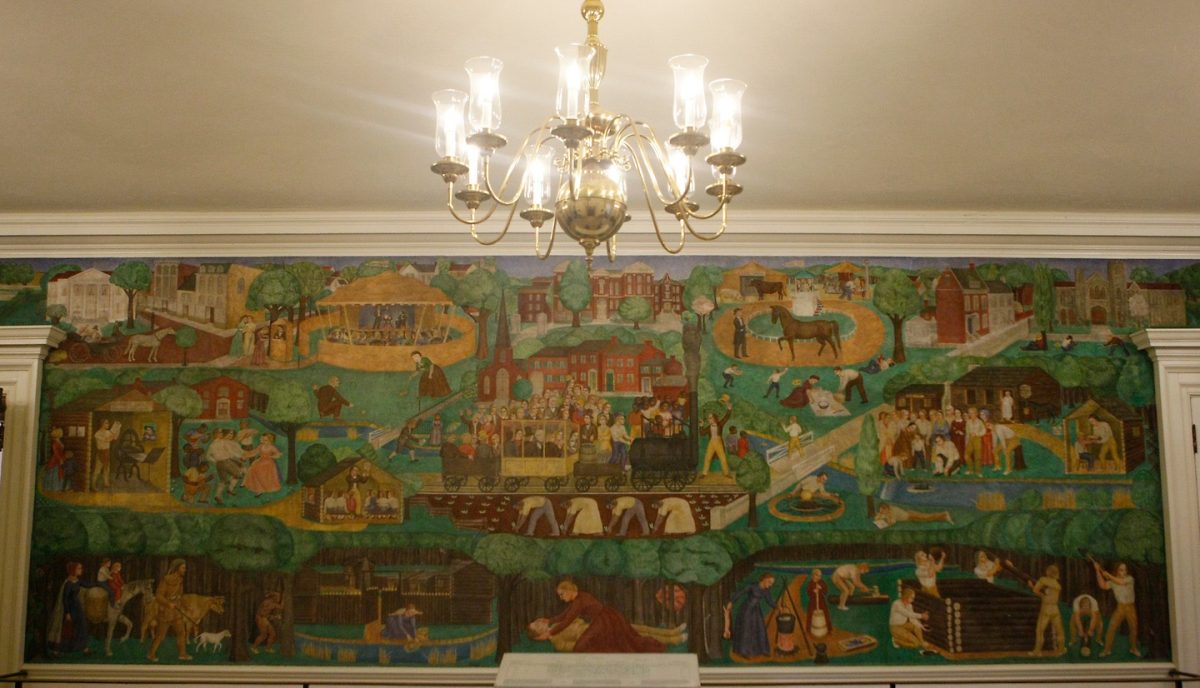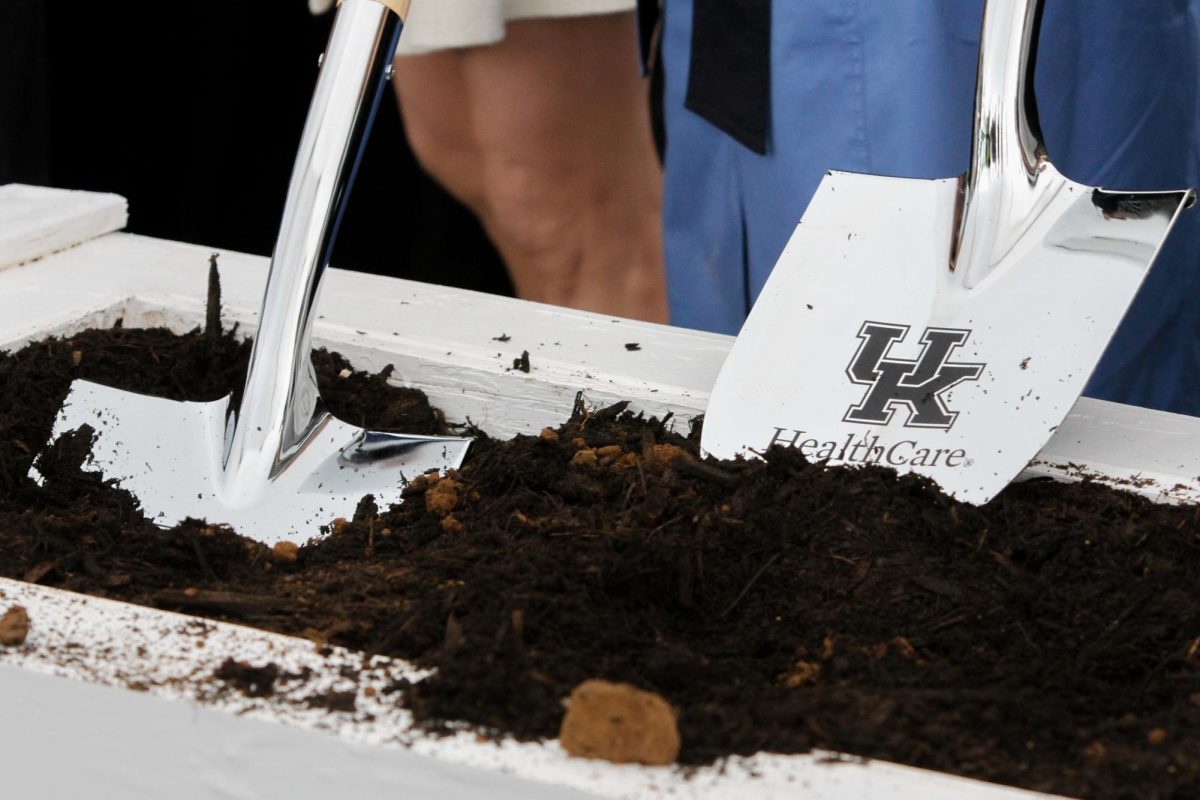UK should consider raising crops on campus for sustainability efforts
September 19, 2008
Column by Emily Foerster
On Sept. 6, I attended the Healthy Foods, Local Farms Conference in Louisville, a daylong event to raise awareness about the health and community benefits of eating locally produced food. I learned a lot, and hearing all of the speakers (our own Wendell Berry among them) inspired me to brainstorm ways UK could increase its consumption of local food even more than it already has.
Buying local food is more important than ever in such a slow economy. As we saw this week with the bankruptcy of Lehman Brothers, and the government bailout of American International Group, giant corporations are not always as stable as they seem, and as we already know, their primary business goals seldom involve fostering healthy communities.
One glance at the coal industry’s presence in Appalachia is enough to teach that lesson. So the only way to guarantee that our community receives the care it needs to flourish (or at least survive) is to keep our money here by purchasing locally produced goods from the producers themselves.
The high cost of fuel around the globe has resulted in increased food prices this year, placing added financial pressure on already cash-strapped Americans. Buying locally can often be cheaper because of the lack of overseas travel and lower fuel costs.
Throughout our history, Americans have banded together during difficult times to alleviate some of the problems facing the nation. One effort in particular that was popular, during World Wars I and II, were “Victory Gardens,†which were nothing more than household vegetable gardens cultivated by single families to support themselves. Americans were able to grow one-third of their food needs in their own yards, thus substantially relieving pressure on the national food supply.
Self-sufficiency is always useful, even during prosperous times. But in difficult times, it is absolutely necessary. UK is in a special position with all of its grassy land to grow its own Victory Garden whose crops could be used directly in campus dining halls.
Dining Services has already made some exciting progress with its sustainable practices. It has eliminated disposable dishes and flatware, installed an efficient dishwasher using less than two ounces of water per dish in Blazer, increased recycling and compost production and started to buy a portion of its fruits and vegetables from local farmers (although the percentages are not available on its Web site). I fully commend all of these advancements, but there is always room for improvement.
An idea some might consider drastic, and one that I feel sure the university will resist but would provide a number of exciting benefits, would be to convert a large portion of our aesthetic lawn spaces into farmland. Yes, we have a beautiful campus, but when did function become ugly? Having an array of various edible plants sprouting their bright flowers would make walking through campus a much more visually interesting experience.
Growing food on campus would also provide a number of economic and environmental benefits to UK during our tough budget cuts. Primarily, we would decrease the cost of food in the dining halls while simultaneously raising quality. We could also make and use compost to fertilize the soil for next year’s crop.
By cutting the use of fuel-guzzling lawnmowers and leaf-blowers, we would decrease landscaping costs and carbon emissions. Aesthetic landscaping is a particularly destructive source of environmental pollution, so we could reallocate our current landscaping budget toward raising something more practical and less harmful. Since we would be producing the food ourselves, the money would, of course, stay in the community, rather than going to an outside corporation.
A sustainable agriculture lab course requiring students to work for credit instead of money could provide extra labor, as could work-study and occasional volunteering. It could even be made to satisfy a USP requirement in which students could study biological processes first hand.
Finally, by embracing the idea of a campus Victory Garden, UK could move closer to its goal of becoming a top-20 research institution. Sustainability is a popular field right now, and it isn’t likely to go away.
In its quest to make UK a top-20 school, our administration obviously supports research that simultaneously provides resources to the school. I feel the same way, but I would rather see that happen by creating something new on our campus than by destroying something majestic in Robinson Forest.























































































































































